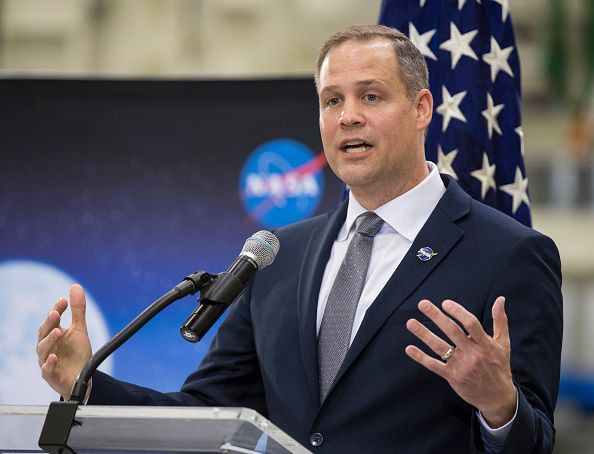NASA Official Addresses COVID-19 Impact On Space Program

KEY POINTS
- Jim Bridenstine discussed how COVID-19 affected NASA
- Employees Of the Ames Research Center are currently working at home
- NASA has postponed three missions due to the coronavirus outbreak
A day after NASA issued a mandatory work-from-home order for the employees of its facility in California, the agency’s administrator, Jim Bridenstine, released an official statement addressing the impact of the current coronavirus outbreak on the space program.
Earlier this week, NASA ordered the staff members of the Ames Research Center in Silicon Valley, California, to start working from home after an employee tested positive for COVID-19. It is not yet clear how long the facility’s telecommuting setup will last.
On March 10, Bridenstine issued a statement to address the incident at the Ames Research Center. According to the NASA official, restricting access to the facility will help prevent the spread of the virus to other employees.
Also, it will enable health officials and medical personnel to conduct their investigations in order to determine and identify the individuals who were in contact with the employee who tested positive for the virus.
“Working with county officials, Ames leadership and medical personnel are working to trace the contacts of the employee and notifying individuals who may have had significant contact with that person,” Bridenstine stated.
Aside from the working conditions of the employees, Bridenstine noted that the current health issue had affected NASA’s space program. Although the Ames Research Center is not a flight facility, it plays a vital role in the missions launched by NASA. It often provides leading information for missions involving lunar rovers, satellites and the search for habitable planets.
According to Bridenstine, NASA has already decided to postpone three missions. These missions are airborne scientific campaigns designed to study Earth. One of the postponed missions is the DeltaX, Dynamics and Chemistry of the Summer Stratosphere, which will focus on understanding the impacts of thunderstorms.
Another mission affected by the outbreak is the Sub-Mesoscale Ocean Dynamics Experiment, which involves studying the various characteristics of oceans.
“Three NASA Earth Science airborne science campaigns slated to deploy across the country this spring have rescheduled their field activity until later in the year,” Bridenstine said. “The campaigns are DeltaX, Dynamics and Chemistry of the Summer Stratosphere and Sub-Mesoscale Ocean Dynamics Experiment, which would include flights from Ames.
© Copyright IBTimes 2024. All rights reserved.





















